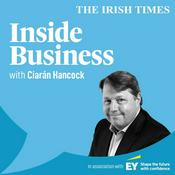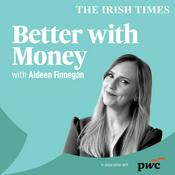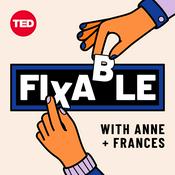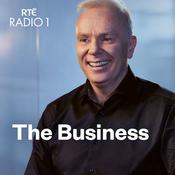747 episodes
- Episode Summary
Auditing your expenses can dramatically improve financial awareness, helping you identify money leaks and understand your true living costs. In this episode, the hosts present a structured four-step framework aimed at facilitating regular expense audits, which ideally should be conducted annually. The discussion includes practical strategies for tracking subscriptions, variable expenses, and distinguishing between required and discretionary spending.
By adopting a calculated approach to expenses, you can effectively mitigate lifestyle creep while ensuring every dollar serves a purpose.
Key Tactical Takeaways
Conduct an Annual Expense Audit: Establish a routine to review expenses at least once a year to stay on top of spending habits and identify areas for improvement.
Categorize Every Expense: Break down expenditures into necessary (fixed costs) and discretionary (variable costs) categories for clearer insights.
Use a Value Matrix: Assess expenses based on their joy and necessity to inform which should be retained, reduced, or eliminated.
Track Subscriptions and Variable Costs: Pay attention to recurring payments, particularly those related to entertainment and services like streaming or software.
Calculate the Long-Term Impact of Small Savings: Remember that cutting small monthly expenses can significantly affect your financial independence number over time.
Core Rules & Formulas
Rule Explanation Annual Expense Audit Review all expenses once a year to prevent overspending and identify leaks. Categorization of Expenses Differentiate between Required (fixed) and Discretionary (variable) expenses. Value Matrix Implementation Organize spending into High Joy/ Low Joy and Essential/ Eliminate quadrants. Prioritize Necessary Expenses Always account for essential bills, including utilities, groceries, and housing costs. Evaluate Impact of Expenses Each $100 cut from monthly expenses reduces your FI number by $30,000 and if invested can generate $60,000 over time (20-year horizon).
Tools, Accounts, or Strategies Mentioned
Tool/Strategy Link/Description Expense Audit Spreadsheet Download here Value Matrix Framework Framework for analyzing the necessity and joy of expenses.
Resources & References
ChooseFI Episode 009: Travel Rewards Framework
Expense Audit Spreadsheet: Download
What To Do Next
Join the Expense Audit Challenge: Participate in the community challenge to gain insights and support while auditing your finances.
Download Your Bank and Credit Card Statements: Begin your audit by gathering statements from the last few months.
Categorize Your Expenses: Use the expense audit spreadsheet to identify necessary vs. discretionary spending.
Reflect on Your Findings: After auditing, identify any hidden expenses or subscriptions that can be cut, and share insights with the community at choosefi.com/login.
Conducting an Effective Expense Audit: A Step-by-Step Guide
Understanding the Expense Audit
Definition: An expense audit is a systematic review of your expenditures to identify unnecessary spending and money leaks.
Goal: The aim is to clarify how much your life actually costs.
Importance of Regular Expense Audits
Frequency: Conduct an expense audit at least once a year to keep track of spending habits.
Long-term Tracking: Monitor for lifestyle creep, which can happen gradually and affect your financial health over time.
Action Steps to Begin Your Expense Audit
Gather Financial Data: Download your recent bank and credit card statements (last 3 to 4 months).
Check statements for variances and patterns in spending.
Categorize Your Expenses: Separate them into categories such as housing, transportation, food, entertainment, and miscellaneous.
Include all necessary and discretionary expenditures.
Identifying Money Leaks
Subscription Services: Track all recurring subscriptions and evaluate their necessity.
Variable vs. Fixed Expenses: Distinguish between fixed permissible expenses (mortgage, insurance) and variable spendings (dining out, entertainment) to identify areas for improvement.
Implementing a Value Matrix
Categorization: Create a value matrix to differentiate between: High Joy (essential to happiness)
Low Joy (non-essential)
Essential (required for daily living)
Eliminate (unnecessary expenses)
Analyze Each Category: Assess each item in terms of value and joy to decide if it should remain in your budget. - Jonathan and Brad delve into the phases of financial independence, emphasizing that progress isn't always linear and can be exciting. They highlight the importance of automating finances and conducting expense audits to gain control over your financial situation.
Key Tactical Takeaways
Conduct a 30-Day Expense Audit: Assess and record all expenses over a month to identify spending habits.
Automate Your Savings: Set up automatic transfers to savings or investment accounts to ensure consistent saving with minimal effort.
Engage with Local FI Groups: Join or establish local financial independence groups to exchange knowledge, resources, and support within your community.
Understand Your Financial Health: Create an income statement to analyze all incoming and outgoing funds regularly.
Core Rules & Formulas
Rule/Formula Description 30-Day Audit Record all income and expenses for 30 days to gauge spending habits. Autopilot Savings System Automate savings and bill payments to reduce active management. Expense Prioritization Focus on reducing debt first, especially high-interest credit card debt. Investment Strategy Choose low-cost index funds or ETFs with low expense ratios for long-term growth.
Tools, Accounts, or Strategies Mentioned
Tool/Strategy Description FI Friends Travel Community-based travel planning for FI enthusiasts. Autopay Systems Automatic bill payment setup for consistent financial management. Low-Cost Index Funds Investing in funds that track market indices to minimize fees.
Resources & References
FI Friends Travel
Episode 472: "The Cure for the Boring Middle"
Episode 262: "Thinking in Bets with Annie Duke" - Embark on a transformative journey towards financial independence with the ChooseFI community, Listeners have come together to share their aspirations and support each other in achieving financial freedom.
From innovative approaches to car shopping using tools like TrueCar, to actionable tips for effective saving strategies and frugal living. this episode is packed with insights to motivate you towards smarter financial decisions.
Key Tactical Takeaways
Engage Locally: Create or join local FI community events to foster connections and support.
Utilize TrueCar: Leverage the TrueCar platform to compare prices and negotiate car purchases effectively, potentially saving thousands.
Practice Intentional Saving: Adopt strategies such as meal planning to reduce grocery costs and enhance savings rates.
Set Clear Goals: Identify specific savings rates and actionable steps to strategically reach financial independence by 2026.
Ideas
Rule/Formula Description 30-Day Savings Challenge Undertake a 30-day challenge to identify and cut 10% of discretionary spending. Rule of 72 To estimate how long it will take for money to double, divide 72 by your expected annual return (e.g., 72 / 8% = 9 years).
Tools, Accounts, or Strategies Mentioned
Tool/Strategy Purpose TrueCar Price comparison tool for car purchases ChooseFI Events Platform for creating and joining local FI community events Sinking Funds Allocate specific savings for future purchases (e.g., cars)
Resources & References
TrueCar
ChooseFI Community - Brad and Jonathan continue unpacking *incremental gains* — the small, tactical decisions that compound into financial independence.
This conversation moves quickly through **core FI math, expense optimization, retirement accounts, and tax strategy**, showing how flexibility, optionality, and understanding the rules of the game can radically change your long-term outcomes.
Retirement Accounts: The Rules That Matter
401(k): Always Take the Match
Employer match = free money
Declining it = turning down part of your salary
Pre-Tax Accounts Are Often Better for FI
Account Benefit Traditional 401(k) Lowers taxable income today Traditional IRA Tax deduction now 457(b) Penalty-free access after separation
📌 Roth accounts are not automatically better for FI seekers.
Tax Strategy (This Is Where FI Wins)
Marginal vs Effective Tax Rates
Term Meaning Marginal Rate on your last dollar Effective Total tax ÷ total income
Optimize for effective tax rate — not marginal.
The Real Goal: Lifetime Tax Optimization
Not just this year's tax bill
Think across decades
Flexibility > certainty
0% Federal Capital Gains (Huge)
Long-term capital gains can be taxed at 0%
Especially powerful in early retirement
Tax-Gain Harvesting
Sell appreciated assets in low-income years
Reset cost basis without paying federal tax
Optionality Is the Real Asset
Lower fixed expenses create:
Tax flexibility
Career flexibility
Location flexibility
Lifestyle flexibility
Paid-off house + paid-off cars + low baseline spending = stealth wealth
Essential Listening & Resources
Topic Resource Frugality fundamentals Episode 12 Free money & 457(b) Episode 13 Capital gains strategy Episode 517 Community platform LOGIN
Take One Action This Week
Calculate your FI number
Do a mini expense audit
Check if you're getting your full 401(k) match
Visit your local library
Be Part of the Show
Log in at choosefi.com/login LOGIN
Leave feedback on this episode
Share:
Your "aha" moment
A tactic you're trying
A question you want explored - Jonathan and Brad explore the infinite possibilities within the financial independence community by discussing the concept of Incremental Gains.
Key Topics Discussed
Introduction to Incremental Gains (00:00:00)
An overview of the episode's aim to introduce innovative ideas within the financial independence community.
What is a Red X Month? (00:02:05)
A red X month is a designated period for relaxation and reflection, allowing individuals to step back from their regular commitments.
Mindset and Incremental Gains (00:05:05)
Importance of having the right mindset in achieving financial independence.
Importance of Time and Journey (00:07:21)
The hosts stress that it's about appreciating the journey, not just the destination.
Roth IRA for Kids (00:29:46)
Discussing how children with earned income can benefit from a Roth IRA, helping them build wealth early.
The Impact of Fees on Investing (00:44:01)
Emphasizing the significance of minimizing fees and its long-term effects on wealth accumulation.
Join the Discussion Go to ChooseFI.com/login
Actionable Takeaways
Red X Month: Consider taking a dedicated month to reset and recharge your priorities. (00:05:05)
Roth IRA for Children: Open a Roth IRA for your child if they have earned income to help them start building wealth. (00:29:46)
Minimize Investment Fees: Invest in low-fee index funds to optimize your long-term wealth and keep track of any fees tied to mutual funds or advisors. (00:43:27)
Key Quotes
"Reclaim your most precious non-renewable resource: your time." (00:16:51)
"It's not about reaching a mythical number; it's about living a better life." (00:08:55)
"Time in the market surpasses timing the market." (00:48:22)
Timestamps
00:00:00 - Introduction to Incremental Gains
00:02:05 - What is a Red X Month?
00:05:05 - Mindset and Incremental Gains
00:07:21 - Importance of Time and Journey
00:29:46 - Roth IRA for Kids
00:44:01 - The Impact of Fees on Investing
Essential Listening Episodes Referred to
Masterclass on Muscle Building
More Business podcasts
Trending Business podcasts
About ChooseFI
How would your life change if you reached Financial Independence and got to the point where working is optional? What actions can you take today to make that not just possible but probable. Jonathan & Brad explore the tactics that the FI community uses to reclaim decades of their lives. They discuss reducing expenses, crushing debt, tax optimization, building passive income streams through online businesses and real estate and how to travel the world for free. Every episode is packed with actionable tips and no topic is too big or small as long as it speeds up the process of reaching financial independence.
Podcast websiteListen to ChooseFI, Money Talks and many other podcasts from around the world with the radio.net app

Get the free radio.net app
- Stations and podcasts to bookmark
- Stream via Wi-Fi or Bluetooth
- Supports Carplay & Android Auto
- Many other app features
Get the free radio.net app
- Stations and podcasts to bookmark
- Stream via Wi-Fi or Bluetooth
- Supports Carplay & Android Auto
- Many other app features


ChooseFI
Scan code,
download the app,
start listening.
download the app,
start listening.




































